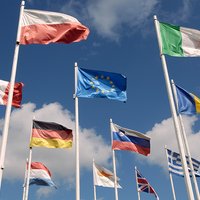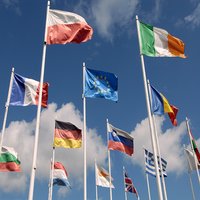Harnessing International Climate Governance to Drive Green Post-Pandemic Recovery
New discussion paper by the Wuppertal Institute recommends international cooperation and exchange

New discussion paper by the Wuppertal Institute recommends international cooperation and exchange

Governments around the world are responding with extensive economic stimulus packages to the crisis triggered by the COVID-19 pandemic. The design of these economic stimulus packages will also determine central framework conditions for future climate policy: the stimulus packages can either provide a strong impetus for a climate-friendly economy or cement unsustainable economic practices. Wolfgang Obergassel and Lukas Hermwille from the Global Climate Governance Research Unit at the Wuppertal Institute and Sebastian Oberthür from the Free University of Brussels discuss how international climate policy can contribute to a green recovery in their new discussion paper "Harnessing International Climate Governance to Drive Green Post-Pandemic Recovery". As the economic stimulus packages are being developed now but the Glasgow Climate Conference has been postponed to November 2021 and climate change continues unabated, rapid action is now required at various levels.
After the postponement of the climate conference in Glasgow, experts from the scientific community and environmental organisations are calling for no let-up in the fight against climate change and for no time to be wasted. But what concrete contribution can international institutions make to help tackle problems such as climate change and the COVID-19 pandemic?
Wolfgang Obergassel, Co-Head of the Global Climate Governance Research Unit in the Energy, Transport and Climate Policy Division at the Wuppertal Institute, explains: "First, international institutions can send out guidelines and signals as to which direction the international community should take. Secondly, they can also go one step further and establish legally binding rules and standards on how countries should behave. Third, they can demand transparency and accountability from countries about how sustainable their economic stimulus packages are. Fourthly, the international community can organise and coordinate financial, technological and capacity-building support for poorer countries. And last but not least, the international community can also promote exchanges between countries on the measures taken and thus collective learning."
Green Recovery Measures in International Climate Policy
In their new discussion paper “Harnessing International Climate Governance to Drive Green Post-Pandemic Recovery,” the authors conclude that international climate policy could promote green recovery in a number of ways.
The paper proposes the following measures:
- Call on countries to make all recovery actions consistent with the goals of the Paris Agreement.
- Lay out specific principles and criteria for green recovery in order to maximise political support and help align efforts internationally.
- Establish a process to review recovery packages and their implementation to support their sustainability and to promote policy learning and fine-tuning.
- Developed countries should confirm and renew their collective and individual commitments to their target of providing at least USD 100 billion annually to developing countries, and to working toward an increased long-term finance objective in the context of greening recovery packages.
Because of the postponement of the climate conference in Glasgow, the timing is now crucial, the authors stress. Lukas Hermwille, Project Co-ordinator in the Global Climate Governance Research Unit at the Wuppertal Institute, explains: "It could help if the British government, as host of the Glasgow conference, would put green stimulus measures on the conference agenda early. It could also call on countries to bring transformative green stimulus packages to the climate conference. This would send a signal to governments that their current policies will be scrutinised in Glasgow. Other states should support the British government in this. In addition, interested countries could also bring the issue up on the agenda in other relevant forums such as the G20."
Press release
Wuppertal Institut für Klima, Umwelt, Energie gGmbH
Responsible for content: Professor Manfred Fischedick, Scientific Managing Director
Contact: Christin Hasken, Head of Communications and Public Relations
Tel.: +49 202 2492-187
Fax: +49 202 2492-108
E-mail: christin.hasken@wupperinst.org
